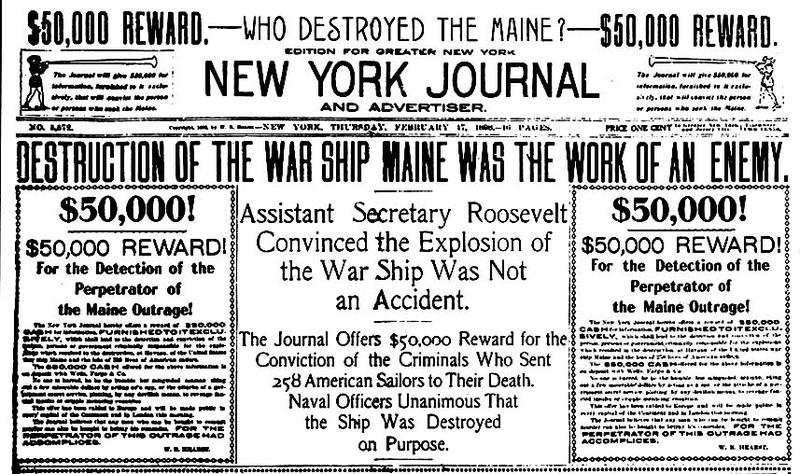BOB: And I’m Bob Garfield. Political lies have a rich history. Take, for instance, the sinking of the USS Maine off the coast of Havana in 1898. Two days after the sinking, the New York Journal declared that the Maine had been brought down by a Spanish torpedo, helping to launch the Spanish-American War. But there was no Spanish torpedo, just a US publisher, William Randolph Hearst, who wanted a war and plenty of politicians who felt the same way. Or we could look at President Johnson and the 1964 Gulf of Tonkin incident, when the President claimed the US military had been attacked twice by the North Vietnamese. The media repeated the claim and Congress authorized Johnson to use military force in Vietnam. But Johnson later admitted to an aide that there probably had been no second attack and, for all he knew, the US sailors may have just been shooting at flying fish. The War lasted another ten years.
Rick Perlstein is a writer for the Washington Spectator. He says that though the lies never cease, the kind of lies politicians tell, and get away with, has shifted over the last half century, beginning in the waning years of the Vietnam War, with a moment of optimism.
Perlstein: there was this brief period in the 1970’s in which truth became fashionable in American politics..

